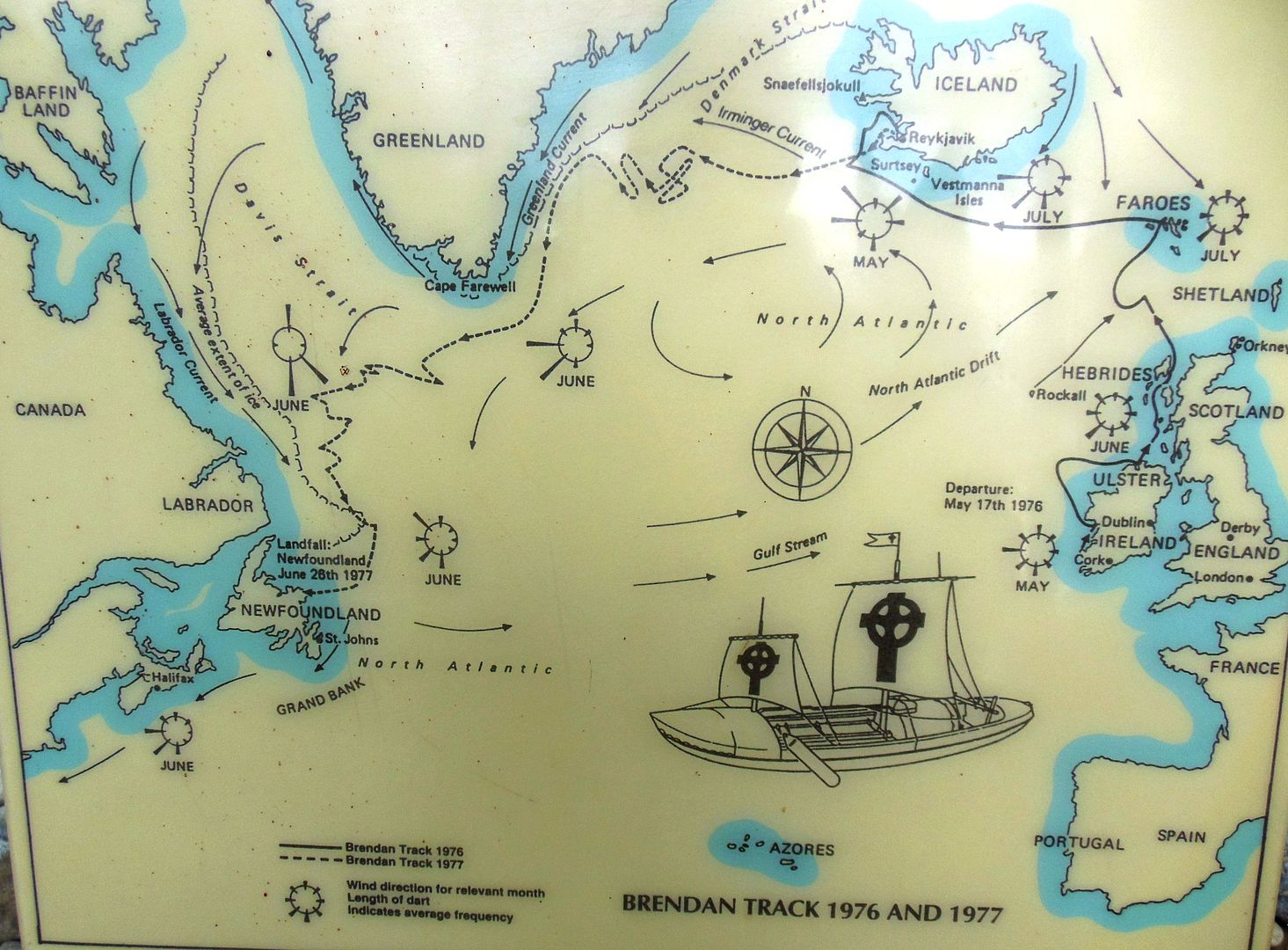Trees
It doesn't have many.
To be honest you have to have the Irish building a naval tradition by the 7th or 8th centuries and then finding another source of timber as the spread of the bogs and the need for farmland tended to result in early deforestation.
Total occupation by the Vikings and a Norse assimilation into Irish culture might do it.
Now Ireland does not have many trees.
In the past Ireland was a Major source of OAK for ships of the Royal Navy.
Concerns over a timber shortage which might inhibit the shipyards
appeared as early as the sixteenth century. Admiral Sir William Monson wrote that
woods in England were then “utterly decayed,” and began to be so too in Ireland.
15 As early as 1612, land lease documents show that lessee requirements could include the
planting of new timber trees and the protection of seedlings from cattle grazing,
demonstrating foresight in the protection of naval stores.
Insatiable Shipyards:
The Impact of the Royal Navy on the World’s Forests, 1200 1850
http://www.wou.edu/las/socsci/history/senior_seminar_papers/2012/Melby,%20Patrick.pdf
Culture - Trees and Irish Social History
The Early Christian, Viking and Norman Periods
In the period 500-1000 AD there were some 30,000-ring forts involving wooden construction and numerous wooden churches. The Vikings brought their wooden ships and indeed Irish oak was used in the construction of some of those, which survived until today. Wattle and daub buildings constituted the Viking towns such as Waterford and Dublin. The Celtic form of land ownership did not really change in this period other than the gradual expansion of farming into wooded areas.
The Normans (1200-1400) introduced new absolute ownership systems including the concept of Royal Forests ( SEE Module 2 – CLICK). These were areas reserved for the Kings (or his deputy’s) ownership mainly for hunting, run by an extensive administration of sheriffs and foresters with powers of death or torture in cases of infringement. This system was common in England and shaped and protected forests there. Royal forests never became widely established here and in Wicklow a local Bishop successfully challenged an ownership case by the Kings agent. This may in part explain why very few extensive forest areas survived. For the first time Irish timber was sourced for England. Wood was used in this period for wattling, bridges, housing and roads. Forest cover may have been as high as 50 % when the Normans came.

Henry VIIIs Forest Act was driven for the demands for woods for shipping and under Elisabeth woods were cut down to contain rebellion. The Tudors had a keen eye for business and exploited woodlands for shipbuilding, house construction and staves and barrels for the wine trade. The charcoal industry was also set up. By the end of the Tudor era forest cover was down to 12%.
During the era of plantation (1600- 1700) extensive tree clearance for political and commercial reasons happened to the extent that Ireland became a net importer of timber. A large volume of ineffectual legislation by the Stewarts, William and Mary and subsequent monarchs was enacted to stop the rot but really ended up penalizing the Irish for traditional uses. There was a continuing demand for Irish oak particularly for London’s reconstruction after the great fire.

Some reversal of the deforestation trend occurred in the 18th century with tree planting on the great estates once the owners felt politically secure. The RDS, set up in the 1740s supported tree planting with grants. However the penal laws and poor laws further discouraged the native Irish from land improvement and alienated them further from an interest in woodlands. However, two events of forestry significance occurred. Samuel Hayes the owner of Avondale wrote a book on woodland management and the Botanic Gardens were established in Dublin.
http://www.projectforest.ie/culture/index4.asp



